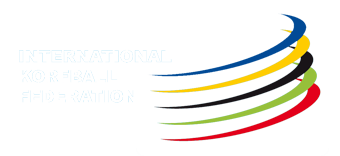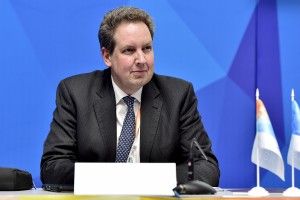All eyes on Taipei – New Year’s Message from the IKF President
292 days. That is the number of days that remain in 2023 until we start the World Korfball Championship in Taipei. 292 days where lots of work remains to be done by the Local Organizing Committee. 292 days of preparation for the 24 national teams that have qualified. And just a few months for those 24 National Korfball Federations to get their budgets organized for the trip to Taipei.
While we have had youth world championships and even an edition of The World Games in Chinese Taipei, it is the first time that the Chinese Taipei Korfball Association (CTKA) has taken on the challenge of receiving the world’s best in Taipei. With 24 countries, the organizational challenge is substantial. All matches will be held in a single Championship venue with 3 courts in one building. We are completing the arrangements with the LOC on ensuring everyone will stay in a single Championship hotel. With the extensive post-covid travel uncertainties still present in Asia, this is not a trivial challenge. However, with the overwhelming commitment of the CTKA, the city of Taipei, the Chinese Taipei Sport Administration, and the Chinese Taipei Olympic Committee, I believe we will be able to provide a fantastic athlete experience next October. The IKF and the CTKA have set up a joint Coordination Committee for the event, which I have the honor and pleasure to chair.
Overseeing the process towards this WKC will be my last duty as IKF President. Since June last year, Executive Vice-President Gabi Kool has been leading the IKF Executive Committee. I have ceased to attend those meetings and have not been involved with the day-to-day decision making in the IKF. Gabi also leads a strategy task force and a task force on further developing our small-format Olympic game. At the World Congress in October, the proposals will be discussed and the principle decisions for the Olympic format will be made. I am very happy that the KNKV (NED) have announced to propose Gabi Kool as a candidate for the election as President, with support of multiple other National Federations. I will continue to chair the IKF Council until October, and – as announced – I will not be eligible for re-election.
This will allow me more time to commit to the development of The World Games and the International World Games Association, provided that the IWGA Membership again entrust me with that privilege at IWGA elections in May.
For this year, apart from the WKC, we will stage our Continental U21 Championships, and the U19 WKC. The next generation remains crucial for our development and I am happy that post-covid we are finally returning to our original cycle of events. Further, we will evaluate the first edition of the Korfball Champions League: a single competition for the best European clubs, culminating in the Satellite Final in Terrassa (CAT), the Challenger Final next month in Bergisch Gladbach (GER), and the Grand Final in Delft (NED). Results of this evaluation will be implemented for next season’s 2nd edition of the KCL.
I wish all of you that are active in playing, coaching, officiating, organizing, or supporting korfball development in any other way, a healthy, prosperous, and joyful 2023, and I look forward to seeing many of you in October in Taipei, or at other korfball events around the world.

